#adania shibli
Text
Besides, sometimes it’s inevitable for the past to be forgotten, especially if the present is no less horrific.
Adania Shibli, Minor Detail (translated by Elisabeth Jaquette)
223 notes
·
View notes
Text
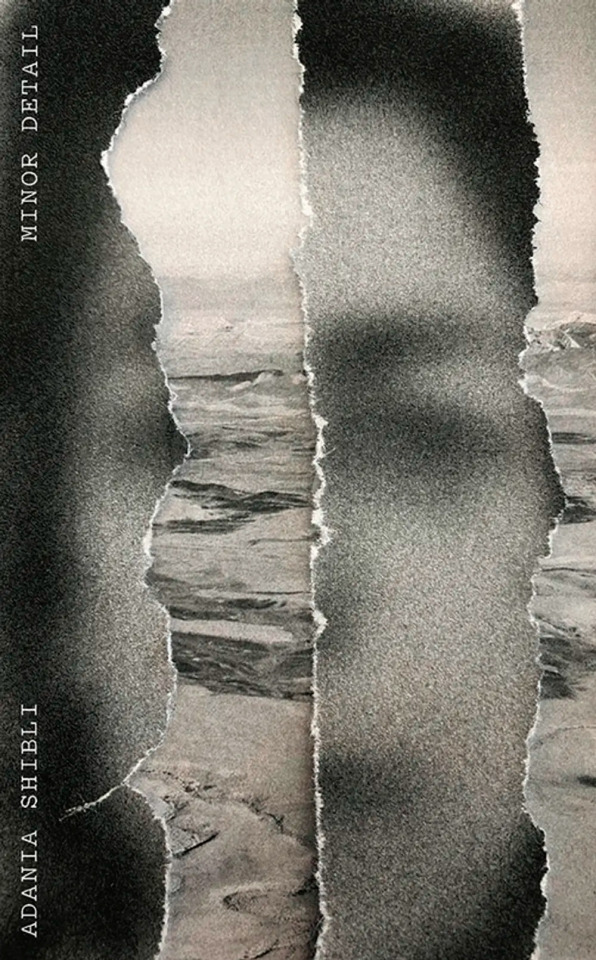
عدنية شبلي (Adania Shibli), Minor Detail, Translated by Elisabeth Jaquette, New Directions, New York, NY, 2020
78 notes
·
View notes
Text
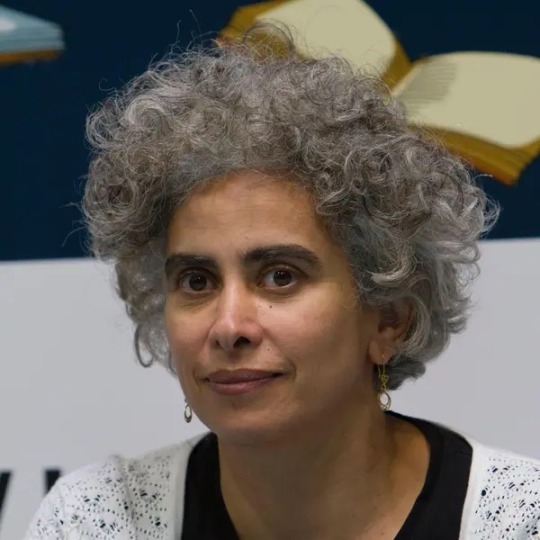
“Organizers cited the Israel-Hamas war as the reason for stepping back from honoring a novel about the 1949 murder of a Palestinian girl by Israeli soldiers.”
Frankfurt Book Fair Cancels Award Ceremony for Palestinian author and essayist Adania Shibli
65 notes
·
View notes
Text
You might have heard of Adania Shibli, the Palestinian author who was meant to receive a prestigious award from the Frankfurt Book Fair but who's award was pulled in the wake of everything happening in Palestine.

Her novel, Minor Detail, is based on a true story - in 1949, Israeli soldiers captured, raped and murdered a young Palestinian woman. It's a brilliant, important book, and its currently free on Amazon, Apple and Kobo.
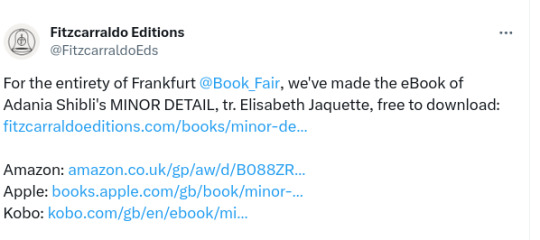
89 notes
·
View notes
Text
Minor Detail by Adania Shibli (review)
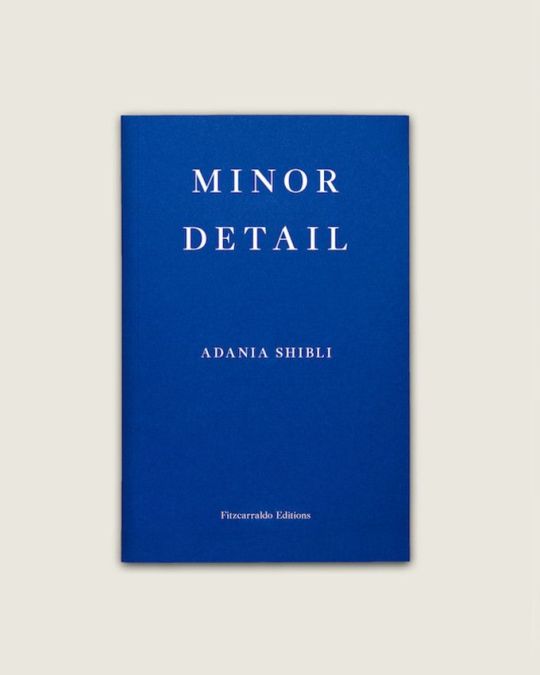
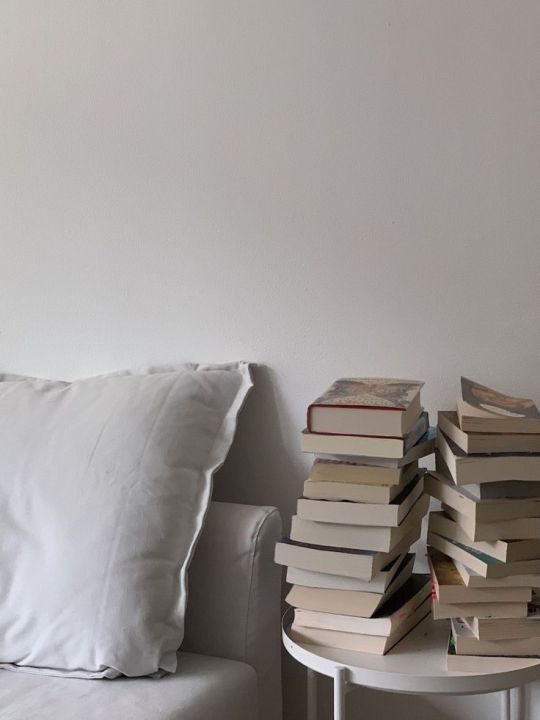
Minor Detail begins during the summer of 1949, one year after the war that the Palestinians mourn as the Nakba – the catastrophe that led to the displacement and expulsion of more than 700,000 people – and the Israelis celebrate as the War of Independence. Israeli soldiers capture and rape a young Palestinian woman, and kill and bury her in the sand. Many years later, a woman in Ramallah becomes fascinated to the point of obsession with this ‘minor detail’ of history. A haunting meditation on war, violence and memory, Minor Detail cuts to the heart of the Palestinian experience of dispossession, life under occupation, and the persistent difficulty of piecing together a narrative in the face of ongoing erasure and disempowerment.
“there are some who consider this way of seeing, which is to say, focusing intently on the most minor details, like dust on the desk or fly shit on a painting, as the only way to arrive at the truth and definitive proof of its existence.”
WHAT I THINK... I'm going to think about this one for a long time, I'm sure and naturally I ran out of words to describe how much I cried (this is not a recommendation, it's a necessity so you should read it) 5/5 ⭐️
MY GOODREADS <33
#adania shibli#minor detail#book review#girlblogger#girlblogging#hyper feminine#lana del ray aesthetic#lana del rey#lizzy grant#sylvia plath#gaslight gatekeep girlboss#girl blog#otessa moshfegh#girl blogger#girl interrupted#coqquette#coquette#lizzy grant aesthetic#lana del ray aka lizzy grant#locally hated#female manipulator#female hysteria#femcel#joan didion#books and reading#book quotes#booklover
21 notes
·
View notes
Text
“The borders imposed between things here [in Palestine] are many. One must pay attention to them, and navigate them, which ultimately protects everyone from perilous consequences... Well, no going back now, not after crossing so many borders, military ones, geographical ones, physical ones, psychological ones, mental ones."
- Minor Detail by Adania Shibli
#adania shibli#minor detail#book quotes#literary fiction#women in translation#free palestine#from the river to the sea palestine will be free#gaza#free gaza#gaza genocide#anti israel#anti imperialism#anti zionisim#migration
48 notes
·
View notes
Text
amid the organizers of Frankfurt Book Fair's open and whole support for Israel, they have shamelessly closed out space for Palestinian literary voices in favor of making Israeli voices "especially visible at the fair", as apparent in the case of Palestinian writer Adania Shibli's prize-giving ceremony and public discussion being canceled.
in response, digital copies of her short novel Minor Detail have been made available for free here. you may also purchase the book online.

41 notes
·
View notes
Text
Short Stories by 10 Palestinian Women, in English Translation
By ArabLit Staff
The history of the Palestinian short story in Arabic is marked by many women writers, from the innovative works of mid-century authors like Samira Azzam (1927-1967); to, more than a generation later, Liana Badr; to the more recent innovations of form and language by Maya Abu al-Hayat, Adania Shibli, Sheikha Helawy, and many others.
Because of how publishing currently works in…

View On WordPress
#Abeer Khshiboon#Adania Shibli#Asmaa Alghoul#Liana Badr#Maya Abu al-Hayat#Nayrouz Qarmout#Nibal Thawabteh#Samira Azzam#Sheikha Hussein Helawy#Suheir Abu Oksa Daoud
11 notes
·
View notes
Text
The Frankfurt Book Fair, an international book festival in Germany, has cancelled its event for the Berlin-based Palestinian writer Adania Shibli, who was supposed to be given an award for her book Minor Detail, and issued a statement saying the fair "stands with complete solidairity on the side of Israel." Reprehensible in any time, but especially infuriating given Israel's current brutal attacks on Gaza and the content of the novel itself—Minor Detail focuses on the rape and murder of a Palestinian girl by Zionists in 1949, which ultimately ends up as a footnote at most in Zionist histories (hence the title.) I read it earlier this year but it's even more pertinent now. I'm glad that Shibli's publishers and some Arab literary organizations are standing by her, but I can't imagine how maddening it would be to be in her position.
21 notes
·
View notes
Text
I’ve been listening to this 2021 interview by adania shibli, the author of minor detail, and when she talks about the complacency of language particularly against those who are not eloquent, who are stuttering and hysterical and repeating details, just really got to me. language and linear narrative’s inherent complacency to victimisation and dispossession.
#oh……#adania shibli#minor detail#NYT headlines flashing in my head when she talks about a journalist talking to a woman who lost everything and asking about official papers#and the woman doesn’t care about grand history she only cares about what is personal to her#that no one else cares about#oh
9 notes
·
View notes
Text
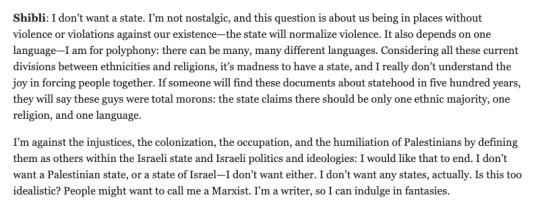
Adania Shibli
8 notes
·
View notes
Text
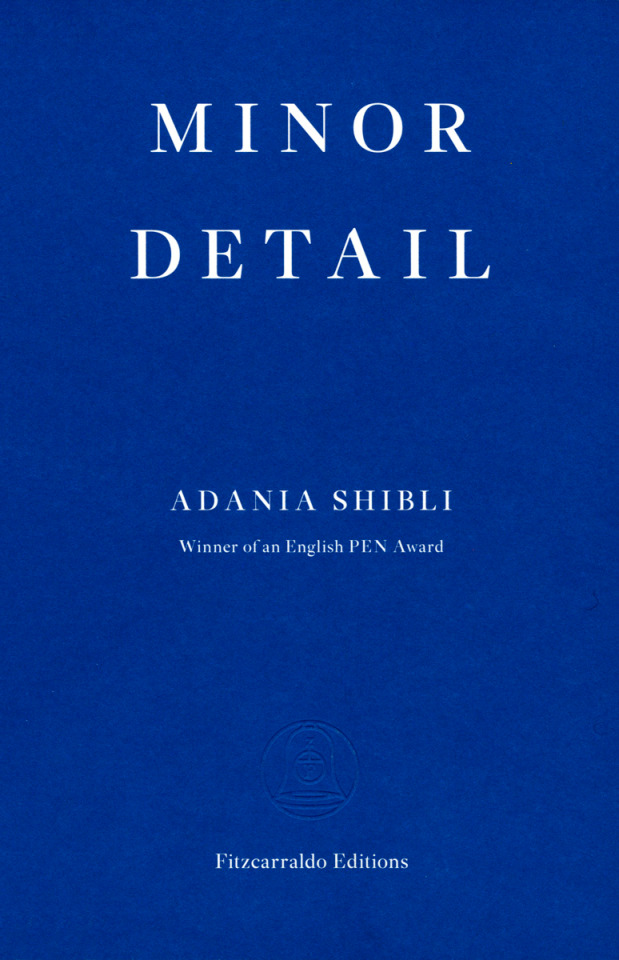
عدنية شبلي (Adania Shibli), Minor Detail, Translated by Elisabeth Jaquette, Fitzcarraldo Editions, London, 2020 [San Serriffe, Amsterdam]
37 notes
·
View notes
Text
"And since this house has many windows, through which the neighbours and their children can easily see me, and catch me trespassing borders even when I'm in my own house, I hung the curtains."
Adania Shibli, Minor Detail. tr: Elisabeth Jaquette
9 notes
·
View notes
Text
" Chiudo il libro, lo poso di lato, spengo la lampada e mi addormento finché, prima dell’alba, il rumore sordo di un’esplosione mi sveglia, seguita qualche istante dopo da una seconda, poi da un’altra e un’altra ancora. Non sto sognando. Faccio ben attenzione, sono proprio rumori di esplosioni e la loro intensità mi fa intuire la distanza tra me e il luogo da cui provengono i colpi. Sono abbastanza lontani, oltre il Muro. Da Gaza o forse Rafah. Il rumore dei bombardamenti varia molto in base alla vicinanza o alla lontananza dal luogo dell’esplosione. Il boato di questo bombardamento non è particolarmente intenso e il rumore non dà troppo fastidio, è piuttosto un suono sordo, profondo e pesante, come quello di un martello che batte su un enorme tamburo. Le bombe che provocano quel boato non scuotono l’alloggio in cui mi trovo, anche se le sue pareti sono di un sottile legno chiaro, non mandano i vetri in frantumi, anche se le finestre sono chiuse. Quando mi alzo dal letto e le apro, la stanza non è invasa da una densa nuvola di polvere soffice al tatto. Invece, al suo interno, si insinua l’aria dolce e fresca dell’alba. Continuo ad ascoltare, le mie orecchie si abituano al suono ripetitivo dei bombardamenti che suscitano in me una strana sensazione di vicinanza con Gaza, oltre a un desiderio di sentire quelle esplosioni da più vicino, di percepire le particelle di polvere degli edifici demoliti dai bombardamenti. L’assenza di tutto ciò mi fa comprendere quanto sia lontana da quello che mi è familiare e, soprattutto, quanto sia impossibile farvi ritorno. Prima di farmi sopraffare dall’ansia e dal terrore, torno a letto e mi addormento di nuovo. "
Adania Shibli, Un dettaglio minore, traduzione di Monica Ruocco, La nave di Teseo (collana Oceani, n° 118), 2021¹; pp. 117-118.
[Edizione originale: تفصيل ثانوي (Dettaglio secondario), Dār al-Ādāb editore, Beirut, 2017]
#Adania Shibli#letture#leggere#Palestina#Monica Ruocco#Un dettaglio minore#Medio Oriente#colonialismo#sionismo#questione palestinese#Israele#apartheid#segregazionismo#narrativa contemporanea#razzismo#segregazione#Ramallah#letteratura del mondo arabo#nazionalismo#libri#Gerusalemme#letteratura palestinese#libertà#scrittrici#intellettuali#violenza sulle donne#citazioni letterarie#femminicidi#Rafah#Striscia di Gaza
10 notes
·
View notes
Text
A couple of days later, I’m informed about their decision to cancel the ceremony as well as my events, all presented to me in a rather brief email. This would still fail to provoke any feelings. I only start thinking of how, based on untruths, one can shift things and affect them in reality with such speed and ease; untruths, or invented facts that were created by members of the press and cultural institutions in Germany. As someone whose lifeline requires leaving the real to loiter in the imaginary, the imaginative is not a practice I would denounce, that is, to rely on «untruths.» I just wish it would be recognized as fiction rather than communicated as truth and facts.
Some of these untruths are expressed by the taz journalist to claim that my novel propagates violence against Israelis and that I am «committed BDS activist»; then by Litprom, who initially stated that the decision to cancel the event was made jointly with me. The «untruths,» or fictions of literature, never manage to have such effects in the real world, perhaps for the better.
Literature’s relevance is not to incite change but intimacy and reflection; to bring others back to ourselves, perhaps a field where we can consider how we relate to ourselves and to others, from living to pain; and to guide us towards imagining how to live better. Or, to quote my friend the writer Rafael Cardoso’s phrase from a Brazilian painter: «to make the unknown better.»
Adania Shibli, from "Once, the Monster Was so Kind", Berlin Review, published on February 2, 2024
8 notes
·
View notes
Text
"sometimes it's inevitable for the past to be forgotten, especially if the present is no less horrific;"
- Minor Detail by Adania Shibli, a book about the Nabka - the catastrophe that led to the displacement and expulsion of more than 700,000 Palestinians - and it's consequences to this day.
#minor detail#adania shibli#palestine#free palestine#gaza#free gaza#israel#middle east#war in the middle east#global politics#politics#*mine
17 notes
·
View notes